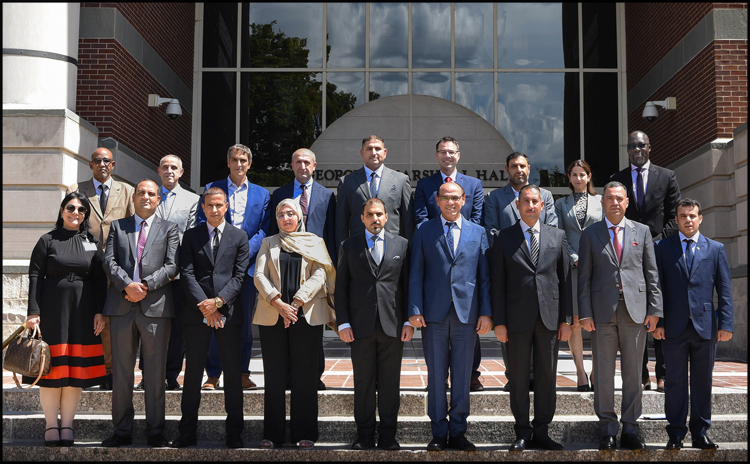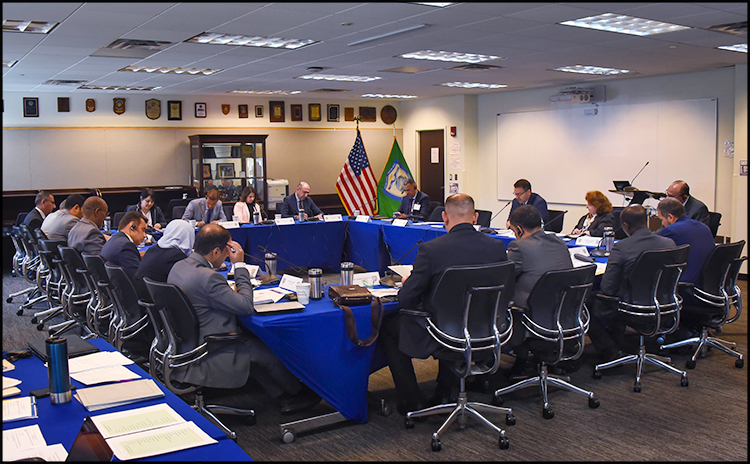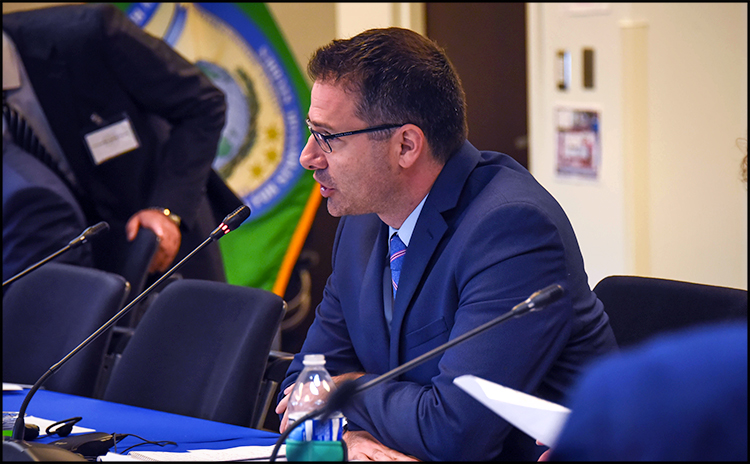2024 Security Opportunities in the MENA Region Seminar
August 30, 2024 2025-03-16 14:032024 Security Opportunities in the MENA Region Seminar
From 19–23 August 2024, the Near East South Asia (NESA) Center for Strategic Studies hosted a five-day seminar titled “Security Opportunities in the MENA Region” and was held in Washington, D.C. The event included 19 participants from 11 countries and provided a venue for partners to listen, learn and brainstorm possible areas to strengthen trust and security coordination. The seminar also provided a unique opportunity to bring in two long-standing NESA Center Alumni as additional participants to ensure a broader range of MENA countries were represented. External specialists and academics were invited to speak during sessions that focused on developing opportunities for regional security coordination in the MENA region.

The seminar was laid out in a “building block” series of sessions and presentations. Each day represented a different security theme, with a keynote session on the first day to address challenges and opportunities in the MENA region in the next three to five years. The second day examined the changing nature of security, and discussed countering violent extremism, transnational threats, and climate change. The third day explored the impact of technology on security and discussed how to define and measure the cyber and artificial intelligence, the role of state and non-state actors use of technology, and how shifting technology trends redefine security threats. The fourth day examined opportunities in the MENA region and the role of economics and human development. The fourth and fifth day included an interactive exercise to prompt participants to identify and rank their top five strategic priorities, and culminated in a final discussion of what can constructively be done regionally and internationally to overcome these challenges and leverage opportunities for broader cooperation and collaboration.

Course Director Dr. Michael Sharnoff and Deputy Course Director Professor Anne Moisan led the seminar. Participants from defense, security, and diplomatic establishments were encouraged to explore and self-identify areas of cooperation, areas of disagreement, and develop proposals to promote progress. By hearing different viewpoints and voices and establishing personal relationships, participants were able to constructively explore ways to advance cooperation and strengthen trust as a strategic national interest for all parties. All discussions were held off-the-record under the Chatham House Rule of non-attribution.






